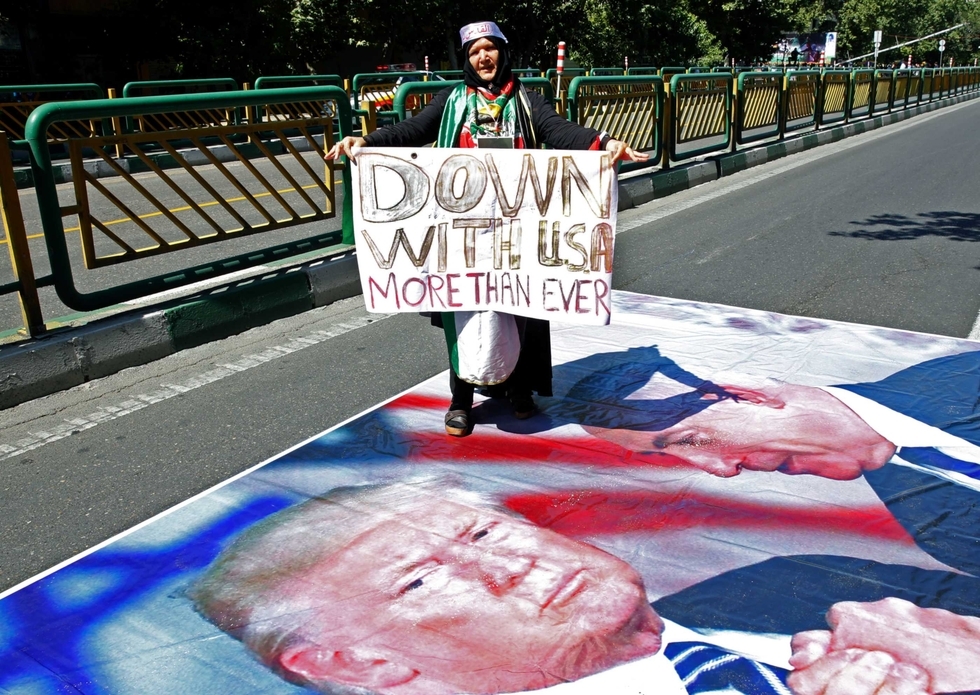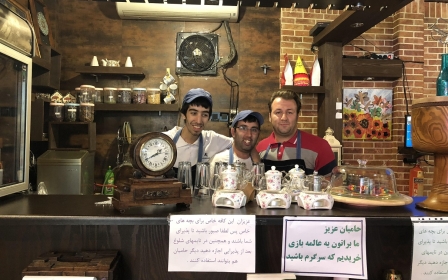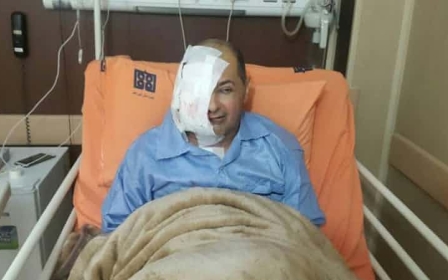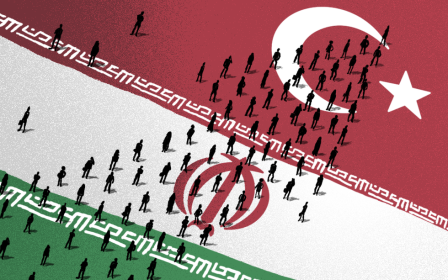Iranian press review: Jailed Iranian activist tells Trump thanks but no thanks

Labour activist speaks out about torture
An Iranian labour activist’s claims of being tortured in detention has renewed debate, albeit temporarily, among high-ranking Iranian officials over the use of torture.
Smaeil Bakhshi, a representative of Haft Tapeh sugar cane mill workers, posted on Instagram on 4 January that he was tortured in late 2018 after being arrested by the Ministry of Intelligence. The arrest came during a recent strike of Haft Tapeh workers in November over unpaid wages and benefits.
In response to the allegations, President Hassan Rouhani and the head of the judiciary, Sadeq Larijani, separately ordered probes into the allegations.
The Iranian parliament’s national security commission also held a meeting with Minister of Intelligence Mahmoud Alavi to investigate the case.
However, the commission came to the conclusion on 8 January that Bakhshi was not tortured during his 25 days of custody.
On Wednesday, Bakhshi said that he had yet to meet any Iranian officials regarding his request to carry out an investigation into his torture.
Study: Majority of Tehran residents unhappy with their city
According to a study recently conducted by the Tehran municipality, 57.9 percent of residents of the Iranian capital are considering moving away from the Tehran metropolitan area.
Published by Shahrvand newspaper, the study suggests many residents of Tehran are not happy living there. Issues afflicting the capital's denizens included pollution, traffic, lack of safety and the widening gap between the rich and poor.
In response to the question “how peaceful is life in Tehran”, 45 percent of respondents answered “little”, 36 percent “average”, and only 19 percent said that they find it peaceful.
With a population of about 10 million in Tehran itself and over 15 million in the metropolitan area of Greater Tehran, the Iranian capital is the most populous city of Iran and the second most populated metropolitan area in the Middle East, after Cairo.
Tehran is infamous for its air pollution and lack of public spaces. According to local officials, in 2017, 13 people died every day in the city from pollution-related diseases.
Jailed activist asks Trump not to shed ‘crocodile tears’ for him
Farhad Meysami, an Iranian political prisoner and activist, wrote an open letter from Evin prison in Tehran denouncing US Secretary of State Mike Pompeo and President Donald Trump for showing him support.
“Apparently, Trump’s State Department urged [Iran] to free me, a self-effacing researcher and social activist,” Meysami wrote in a letter published on 5 January on reformist website Kaleme, which is blocked inside Iran. “This surprised me, and made me think, what could be the relation between ‘Trump’s State Department’, ‘freedom’ and ‘me’?”
Meysami was arrested in July for supporting a campaign against the compulsory hijab in Iran.
“I thank all true supporters of human rights… and beg the kind of Trump, Pompeo and Bolton to shed their crocodile tears elsewhere,” he added. “This is us, Iranians, who should wish immediate ‘freedom’ for the great nation of America from the current catastrophe of imprudence.”
Meysami’s letter also went on to detail his struggle against standing trial without a lawyer. He heavily criticised the Iranian judicial system and clarified his views on gradually seeking change in the political system.
A day after Kaleme published his letter, a group of pro-monarchy Iranians asked Trump to launch a financial fund to support anti-Islamic Republic movements.
Live sheep parked in a Tehran garage
Iran’s official news agency IRNA published a photo story about illegal shepherding in the parking garage of an apartment building in Tehran’s district 15, a poor neighbourhood at the southeastern end of the city.
IRNA reported that police shut down the place, with no further details on possible arrests or the fate of the sheep. Photos showed a small flock of sheep being kept in a parking lot poorly lit by fluorescent lights and ventilated by ceiling fans.
Since Donald Trump reimposed economic and oil export sanctions on Iran in May, food prices have soared in the country, with a 50 percent increase in the price of meat, according to official numbers, leaving some nine million Iranians unable to afford meat.
The price increases have resulted in the emergence of an illegal meat market, notably turning livestock trafficking into a lucrative business in remote parts of Iran bordering Iraq, Pakistan and Afghanistan.
* The Iranian press review is a digest of reports in Farsi-language publications that are not independently verified as accurate by Middle East Eye.
Middle East Eye propose une couverture et une analyse indépendantes et incomparables du Moyen-Orient, de l’Afrique du Nord et d’autres régions du monde. Pour en savoir plus sur la reprise de ce contenu et les frais qui s’appliquent, veuillez remplir ce formulaire [en anglais]. Pour en savoir plus sur MEE, cliquez ici [en anglais].




